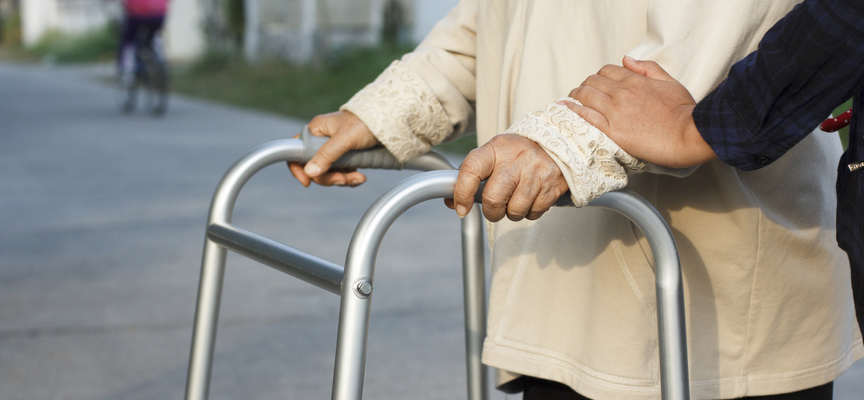Apply to Be a Direct Care Workers
ARE YOU CARING & COMPASSIONATE?
Silver Lining is looking for individuals with at least 3 years experience as a home health aide.
FLEXIBLE HOURS!
Work when & where you choose! Live-in or hourly work is available.
Starting rates between $15 & $16 per hour.
We service clients in Philadelphia, Montgomery, Bucks and Delaware counties.
Call 215-885-7701 for an application Or Apply Today by clicking the button Below
Changing Taste Buds

As you age, your ability to taste may likely diminish.
There are so many factors affecting appetite and food intake in the elderly that one of the most obvious is often overlooked—taste.
Changes in the body resulting from aging impact the sensory system and may result in appetite depression leading to weight loss, malnutrition, and deterioration of other medical conditions. A cycle starts to develop that exacerbates declining health.
A loss of taste begins for most of us in middle age and continues to fade. As seniors’ ability to smell, and thus taste diminishes, the challenge becomes how to get the nutrients you need and enjoy the food you’re eating.
The list of contributors to declining smell, taste, and appetite is virtually endless. A history of illness i.e., allergies, upper respiratory infections, as well as head injuries can impact your senses. As we age and produce less saliva, “dry mouth” becomes a common complaint. Dry mouth frequently accelerates tooth decay, loss, the need for dentures, and overall mouth sensitivity. In addition, many medications can greatly affect taste.
The elderly commonly lose their sense of salty taste and tend to overuse salt. An increase in salt and sugar can bring on or aggravate other health conditions, such as diabetes and hypertension. A reduced ability to recognize spoiled food might lead to food poisoning, resulting in nausea, vomiting, and diarrhea. The cycle feeds on itself—no pun intended.
If possible, seek the help of a dietitian to develop food lists that are appetizing to you. Some senior centers provide guidance or workshops on nutrition. Ask your primary care provider about programs that might be available.
Enhancing variety, flavor, even altering temperature can go a long way to improving your interest in food. There are many great articles on-line that offer insight and suggestions. Visit http://longevity.about.com/od/agingproblems/a/Is-Your-Taste-Changing-With-Age.htm for more information and simple steps to follow.
More Comfort Food
Pasta and bean soup
Here’s another soup staple that is super easy.
Ingredients
2 tablespoons olive oil
1 large onion, chopped
3 celery ribs, thinly sliced
1 medium carrot, thinly sliced
2 garlic cloves, minced
3 cans (15 ounces) white kidney or cannellini beans, rinsed and drained or one bag dried beans
1 tablespoon tomato paste
1/4 teaspoon salt
1/8 teaspoon pepper
1 tablespoon brown sugar
In a large nonstick saucepan, saute the onion in oil for 10 minutes or longer (until carmelized). Add celery, carrots, and garlic; cook 10 minutes longer.
Add the beans and saute a couple of minutes.
Pour in enough water, chicken broth, or a combination of both to cover beans by about an inch ot two.
Stir in tomato paste, brown sugar, salt, and pepper. Bring to a boil. Reduce heat; cover and simmer for 1 hour (at least) or 2 hours for dried beans (or until tender).
Add salt and pepper to taste. You can add chopped chicken, spinach, or cooked pasta.
Grated parmesan cheese helps pull all the flavors together.
This soup freezes well and can easily be reheated by stove or microwave.
Soup—the Ultimate Comfort Food
For many seniors, soup can be an ideal food choice.
Particularly as winter approaches, soup becomes a nutritious staple with a multitude of benefits.
We all know that Chicken Soup can alleviate the symptoms of a cold or flu. As a matter of fact, most soups, either meat based or vegetarian, not only soothe a variety of ailments but pack a punch in providing much needed vitamins, protein, calcium, and other nutrients.
Seniors’ dietary needs are often unmet. Several factors can make it difficult to eat and many times food simply becomes less appealing. Changing taste buds, dental problems, medication side effects, or the prospect of eating alone can all contribute to a poor diet. Poor nutrition often exacerbates existing health problems creating a vicious cycle of declining health.
Most soups freeze well. Having a batch available either for heating on the stove or in the microwave makes it an easy alternative to preparing a meal from scratch.
We’ll be posting some simple recipes in the coming months to keep you and your loved ones warm and satisfied through winter.
Old Fashioned Chicken Soup from Cooking Light
Ingredients
8 cups Chicken Stock or fat-free, lower-sodium chicken broth
2 (4-ounce) skinless, bone-in chicken thighs
1 (12-ounce) skinless, bone-in chicken breast half
2 cups diagonally sliced carrot
2 cups diagonally sliced celery
1 cup chopped onion
6 ounces uncooked medium egg noodles
1/2 teaspoon kosher salt
1/2 teaspoon black pepper
Celery leaves (optional)
Preparation
1. Combine the first 3 ingredients in a Dutch oven over medium-high heat; bring to a boil. Reduce heat; simmer 20 minutes. Remove chicken from pan; let stand for 10 minutes. Remove chicken from bones; shred meat into bite-sized pieces. Discard bones.
2. Add carrot, celery, and onion to pan; cover and simmer for 10 minutes. Add noodles, and simmer 6 minutes. Add chicken, salt, and black pepper; cook for 2 minutes or until noodles are done. Garnish with celery leaves, if desired.
The Changing Season

The Onset of Fall Can Affect Your Mood.
Now that we’ve all stopped complaining about the excessive heat, be aware that the change in seasons can bring on an unexpected change in mood. Seniors are especially at risk for Seasonal Affective Disorder (SAD), a form of depression, particularly if they have a predisposition for mood disorders.
Mental health professionals believe a lack of sunlight and hormone fluctuations result in this cyclical form of depression that often lifts when the seasons change. Researchers think that shorter days interrupt the body’s circadian rhythm. An imbalance of the brain chemicals serotonin and melatonin may contribute to sleep irregularity and depression.
Isolation, boredom, restricted mobility, chronic health conditions, and medication can all magnify feelings of depression that many elderly experience. According to the NIH, seniors affected by SAD may exhibit social withdrawal, lethargy, decreased interest in activities, increased appetite and weight gain.
There are simple measures that may help your loved one transition more smoothly into the winter months.
Introduce as much natural light into the environment where they spend most of their time. If sunlight is sparse, you can purchase a “light box” that emits UV rays. These boxes have proved to be effective for helping to correct chemical imbalances.
A nutritional diet and physical exercise can also reduce the symptoms of SAD.
Vitamin D is a vital nutrient that has been linked to bone health, incontinence prevention, diabetes prevention, as well as stabilizing mood. Ask your doctor if taking supplements is appropriate and safe, as it might interact with other medications.
Don’t underestimate the importance of your loved one spending time outdoors. In all but the harshest of conditions, breathing fresh air and being in sunlight can be extremely beneficial.
As a last resort, you might consider seeking professional help and having them prescribe an anti-depressant. There are also homeopathic treatments that have proven to be very effective.
Awareness is the first step in any kind of potential intervention. Be sensitive to your loved one’s disposition and be proactive if you sense any changes that may affect their well being.
Remember House Calls?

The practice of medicine has changed dramatically in the last 75 years. Most of us over 50 years old remember the doctor making house calls when we developed a virus or were physically in some form of distress.
Home visits became a thing of the past when pay-as-you-go fees were replaced by health insurance. Administrative costs and malpractice insurance forced doctors to enter group practices to manage workload and costs.
Particularly for seniors, having gone through the transition of a changing medical system: busy waiting rooms, long waits, and a sterile exam room is still a big adjustment. The growing impersonal nature of visiting the doctor’s office, often becomes a deterrent for “seeing a doctor”. Many older people still have a hard time understanding that the doctor can only spend 15-20 minutes with them even if all of their concerns have not been met or questions answered.
Frequently it is either too physically difficult or too stressful to get to the office. A lack of transportation or a fear of having to go alone are common obstacles to making or keeping an appointment.
The importance of finding a primary care doctor that you feel comfortable with is imperative. Doctors specializing in geriatrics are usually more tuned in to senior sensibilities and are frequently more accommodating.
Slowly, home care doctor visits are starting to make somewhat of a comeback, other than for just those who are home bound. Technology has enabled health care providers to have records on hand and perform simple procedures like taking blood and x-rays.
If you are helping to care for an aging loved one who is reluctant or unable to visit an office, ask your doctor if they provide home service or know anyone who does. Your local hospital might also be able to make recommendations.
As lifespans increase, the medical community continues to evolve in an attempt to meet the needs of the elderly. Stay informed and continue to do research. Knowing your options will help you or your loved one age gracefully.
Seniors Commonly a Target for Fraud

Scam artists get rich on other people’s Social Security, PIN or account numbers. Keep yours private.
Whether over the telephone, on your doorstep or over the Internet, don’t give your private financial information to a stranger or to someone with whom you haven’t initiated contact. Instead, ask the person contacting you for information in writing. Although you may never receive this information, you give yourself the opportunity to find out whether the offer is legitimate before you act too quickly and give your financial information to a professional scam artist.
See http://www.stopseniorscams.org for helpful information.
Products to Make Life Easier

Is it getting harder to turn a door knob or put on your socks? Devices are available to make daily activities easier. The Department of Education’s website, www.abledata.com, has information on more than 30,000 assistive-technology products designed to make it easier for people to do things for themselves. If you can’t use a computer, you can call 1-800-227-0216 (toll-free) to learn more.
Getting around—at home and in town. Are you having trouble walking? Perhaps a walker would help. If you need more, think about getting an electric chair or scooter. These are sometimes covered by Medicare. Do you need someone to go with you to the doctor or shopping? Volunteer escort services may be available. If you are no longer driving a car, check if there are free or low-cost public transportation and taxis in your area. Maybe a relative, friend, or neighbor would take you along when they go on errands or do yours for you.
Safety. Are you worried about crime in your neighborhood, physical abuse, or losing money as a result of a scam? Talk to the staff at your local Area Agency on Aging. Do you live alone, and are you afraid of becoming sick with no one around to help? You might want to get an emergency alert system. You just push a special button that you wear, and emergency medical personnel are called. A monthly fee is charged.
Housing. Would a few changes make your home easier and safer to live in? Think about things like a ramp at the front door, grab bars in the tub or shower, nonskid floors, more comfortable handles on doors or faucets, and better insulation. Sound expensive? You might be able to get help paying for these changes. Check with your local or State Area Agency on Aging, State housing finance agency, welfare department, community development groups, or the Federal Government (see the resources in For More Information).
www.nia.nih.gov/health/publication/theres-no-place-home-growing-old
Don’t Wait Until a Crisis

With an aging population in the US, we are often faced with the realities of aging and the decisions that must be made to ensure both the comfort and safety of the people we love.
This situation can be daunting—especially if you’re unprepared. If a relatively independent parent, spouse, or other loved one suddenly is diagnosed with an illness, or takes an unexpected fall, you not only have to deal with the emotional upheaval, but with the practical, day to day routine that has dramatically changed.
The level of care needs to be carefully weighed to match your needs. Does your loved one require a live-in facility that offers complete care? Are they able to remain at home— require skilled nursing—or a Home Health Caregiver who can provide non-medical assistance such as with meals, driving, or simply needs companionship?
Finances often dictate the decisions that are made. Nursing home costs can be prohibitive, and studies show that most people prefer to remain in their own home when possible. It is important to find a financially viable solution that doesn’t add stress to an already stressful situation.
Don’t wait until you’re in crisis mode. Start doing your homework before you have an immediate need. Talk to friends and other family members, get recommendations from your church, synagogue, community organizations—peruse web sites, and interview prospective facilities or staffing services.
Knowing that there are options available, trusted resources to step in and alleviate the pressure, offer experience and solutions—goes a long way toward peace of mind.
How to be a Good Patient

5 Things Your Doctor Dislikes About You
Don’t be labeled a ‘difficult patient’
by Nissa Simon, AARP Bulletin, December 23, 2011
Ask anyone what’s wrong with the medical profession and you’ll hear a long list of complaints: Too many pricey medications. Forever behind schedule. Always talks, never listens. Rushes me in and out of the examining room.
But people rarely hear what bugs doctors about patients. Their gripes are generally aired as doctors walk the hallways at medical meetings or chat behind closed doors at conferences. Here’s your chance to find out what annoys your doctor.
1. You don’t arrive on time
Here’s a tip: Ask for the first appointment of the day, so you won’t get caught up in other things before the appointment. This also works in the reverse — for doctors who always make you wait.
2. You treat your doctor’s office as your personal assistant
Here’s a tip: If the problem doesn’t directly involve your health, don’t make it your doctor’s or dentist’s responsibility.
3. You don’t admit that you’re not taking your medicine
Doctors become irritated with patients who don’t take their medications. They don’t know that their patients may not understand the directions, believe the drugs aren’t working, experienced severe side effects or can’t get to the pharmacy to fill the prescription.
Here’s a tip: If your doctor gives you a prescription for a medicine that you hesitate to take, ask why you need it, whether a lower dose would work and whether there’s a substitute or less expensive alternative.
4. You diagnose your own medical problem and tell the doctor how to treat it
Doctors grumble about patients who diagnose their own ailments or direct their own treatment. “When patients start diagnosing their own problems, we all have a problem,” says Boston University’s Price. “I just want them to tell me their symptoms.”
Here’s a tip: Ask the doctor’s advice, don’t give him yours.
5. You start asking questions just as the doctor heads out the door
To get the most out of the short time you have for an office visit — anywhere between 15 and 20 minutes at latest count — it pays to come prepared with a list of questions you’d like answered.
Here’s a tip: If you have a lot of questions, there may not be time to answer all of them. Put a star next to the five most important ones and ask those first.
Nissa Simon, who lives in New Haven, Conn., writes about nutrition and medical issues.
Read more at aarp.org/health/doctors-hospitals/info-12-2011/doctor-patient-complaints.2.html

